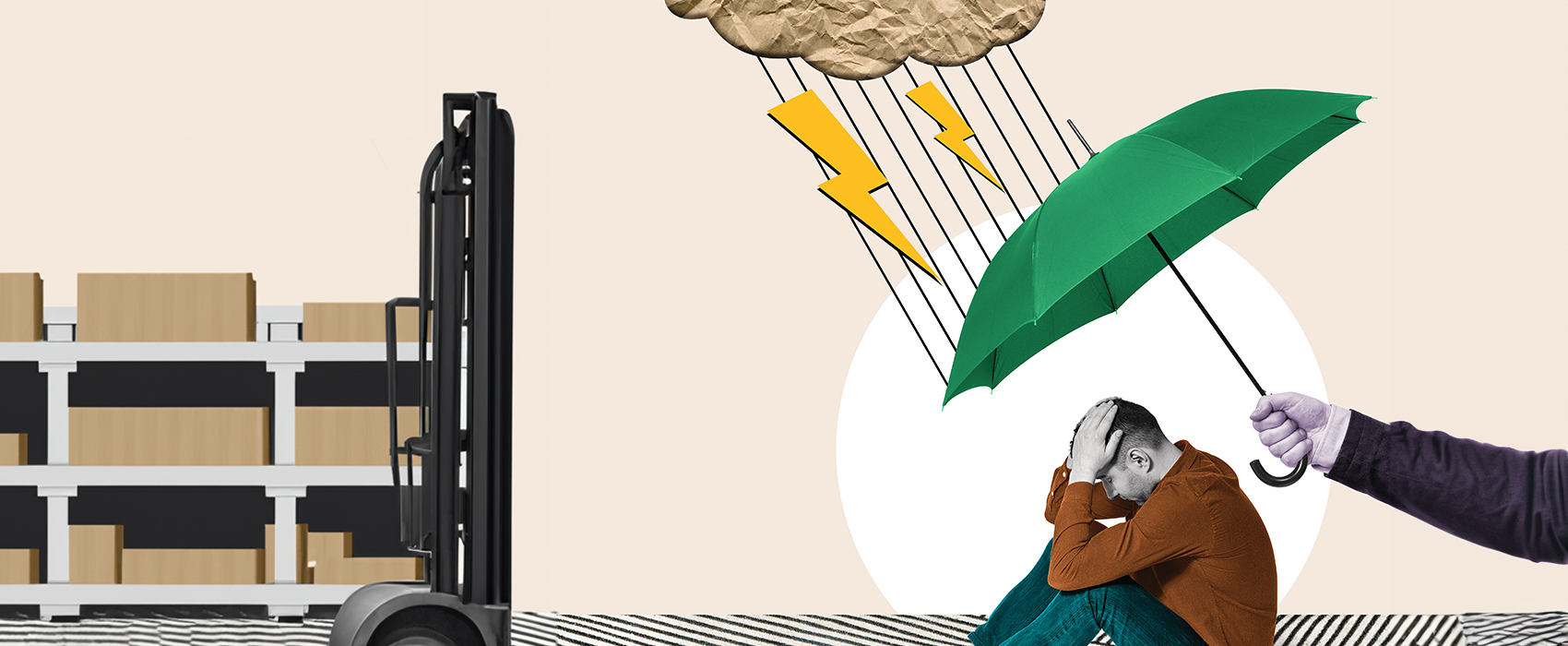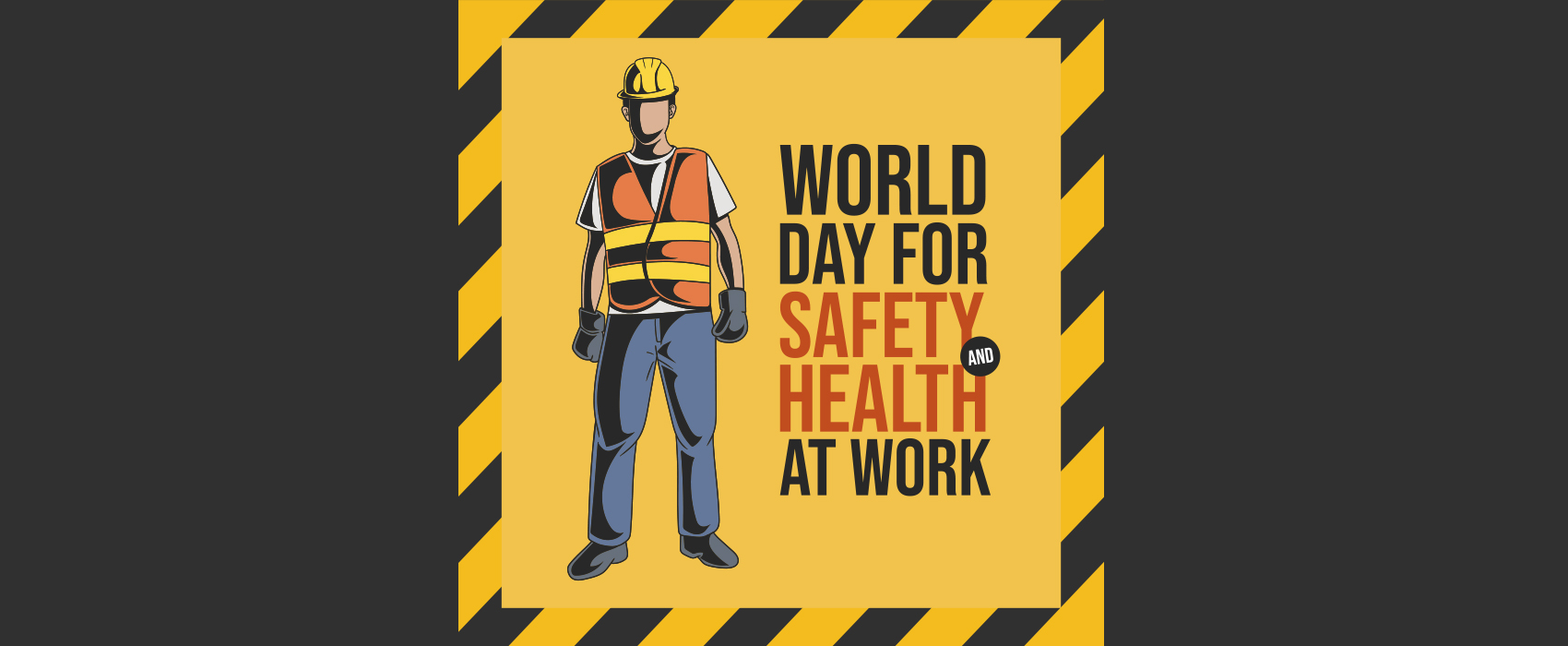
Mental health in logistics
This world mental health day (October 10), it’s time to talk about mental health in logistics.
Mental health awareness has increased dramatically in the sector over the past few years, with significant financial investment made into campaigns to tackle some of the most common difficulties experienced by those working in the industry.
But logistics and transportation continues to be a highly pressurised area in which to work, not helped by the impacts of a global pandemic and Brexit fallout in the UK.
With a survey by Westfield Health showing more than three quarters (76%) of employees within the transport and logistics sector think their employer could do more to help them manage work-related stress, anxiety and other mental health issues, it’s clear there is more that we could and should be doing to help those struggling.
This World Mental Health Day we’re highlighting the importance of continuing to talk about mental health, as well as how vital it is to seek help if you or someone you know is struggling.
Mental health: The statistics
According to the World Health Organisation, around 15% of working-age adults suffer from some kind of mental illness. Globally, an estimated 12 billion working days are lost each year to depression and anxiety, at a cost of around $1 trillion US dollars in lost productivity.
The charity Mind reports that more than one in five workers has called in sick to avoid work, with around one in seven (15%) resorting to resigning from their job due to workplace stress.
In our industry, some 30% of self-reported work-related illnesses are due to stress, depression or anxiety. Other causes of strain on workers’ mental health include shift working, social isolation and the onset of seasonal affective disorder during the cold, dark mornings and evenings of winter.
Poor working environments, excessive workloads, job insecurity and discrimination are among the factors that can contribute to poor mental health in the workplace.
But get it right and research suggests that working can actually be good for people’s mental health, providing them with not only an income but also structure, purpose, a sense of achievement and a feeling of belonging.
In order to protect their employees and best support those workers with pre-existing mental health conditions, businesses need to ensure they are providing a safe, healthy and supportive working environment where worker wellbeing is a priority.
Resources for employers
Some of the free resources available to employers on the topic of mental health at work include:
Mind – Taking care of your staff
Mental Health At Work
CIPD Wellbeing resources
Where to get help
If you are concerned about your own or someone else’s mental health, it is important to seek help. No matter what you or someone else is going through, you do not have to do it alone.
You can speak to your GP, who can support you to access talking therapies or refer you on to additional services that can provide for your specific needs.
You could speak to a counsellor or therapist, and you can seek help from friends and family.
If your organisation has an employee assistance programme, this can often be a good place to start.
You might want to seek help if you are:
- Worrying more than usual
- Finding it hard to enjoy life
- Having thoughts and feelings that are negatively impacting your daily life.
You can find local support that may be available to you via The Hub of Hope national database, which brings together local mental health services.
If you don’t want to speak to someone face-to-face, many charities run helplines where you can receive free, confidential advice and support. These include:
Samaritans
Call 116 123 for free from any phone, 24 hours a day, 365 days a year.
SANEline
Call 0300 304 7000 between 4.30pm – 10.30pm, 7 days a week.
National Suicide Prevention Helpline UK
Open from 6pm until midnight, 7 days per week. Call 0800 689 5652.
CALM (Campaign Against Living Miserably)
Call 0800 58 58 58. Open 5pm until midnight, 7 days a week. CALM also has a webchat service for those who can’t or don’t want to speak on the phone.
SHOUT
Text SHOUT to 85258 for confidential text support in a crisis. Open 24/7.
The Mix
If you’re under 25, you can call 0808 808 4994 between 3pm and midnight, 7 days a week, send a message, or text THEMIX to 85258.
Papyrus HOPELINEUK
If you’re under 35 and struggling with suicidal feelings, or worried about someone else who is feeling suicidal, call 0800 068 4141 or text 07786 209697 24 hours a day, 7 days a week.
Switchboard
If you identify as gay, lesbian, bisexual or transgender, call 0300 330 0630 between 10am and 10pm any day of the week.
HGV drivers
Text “BeAMate” to 85258 for free, confidential support from trained volunteers 24 hours a day, seven days a week.
In a crisis
If you are concerned about an immediate risk of harm, either to yourself or someone else, call 999. Otherwise, for urgent mental health support, contact your local NHS mental health crisis support line.
You might also like

Employer responsibilities for health and safety

















